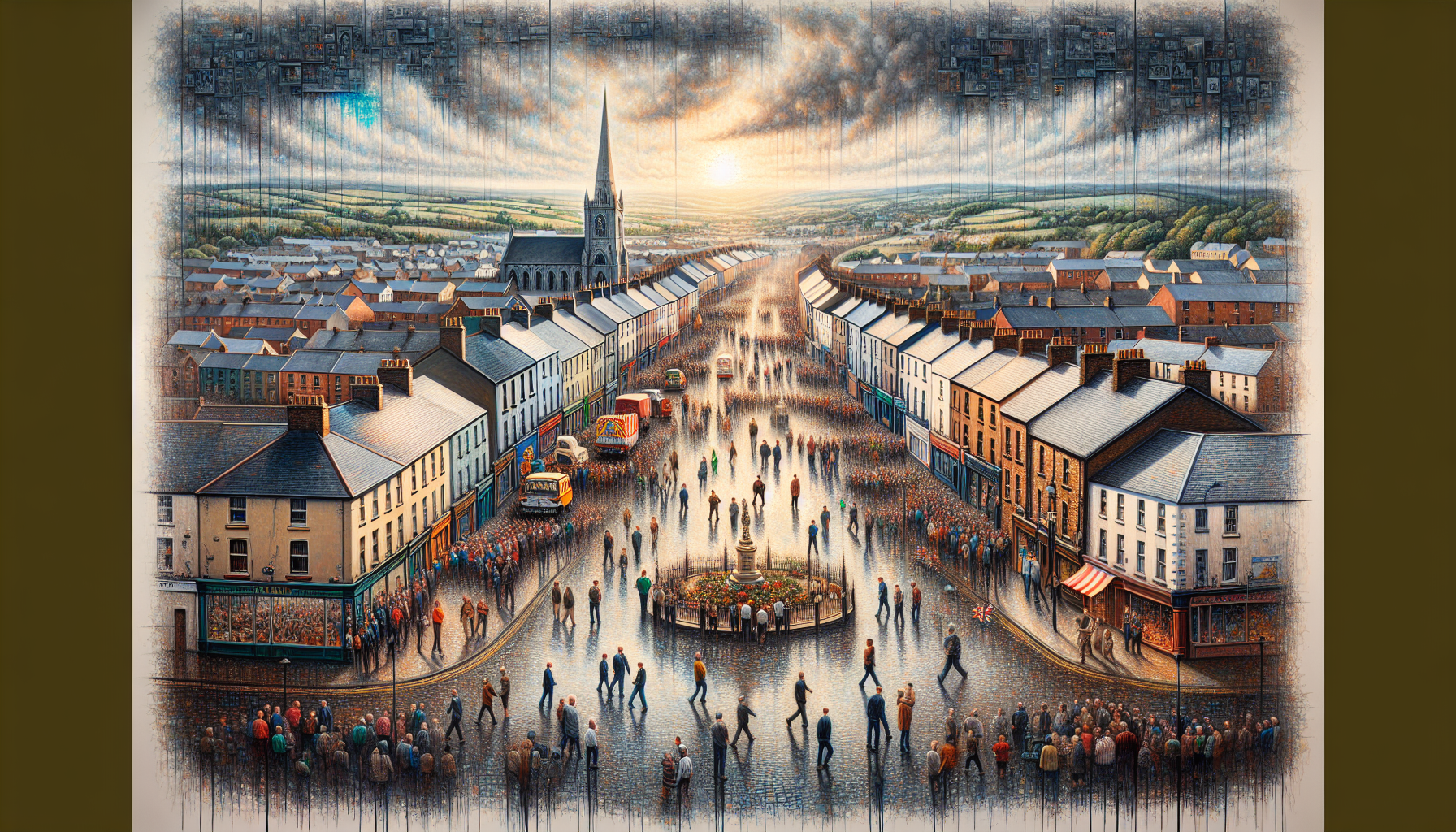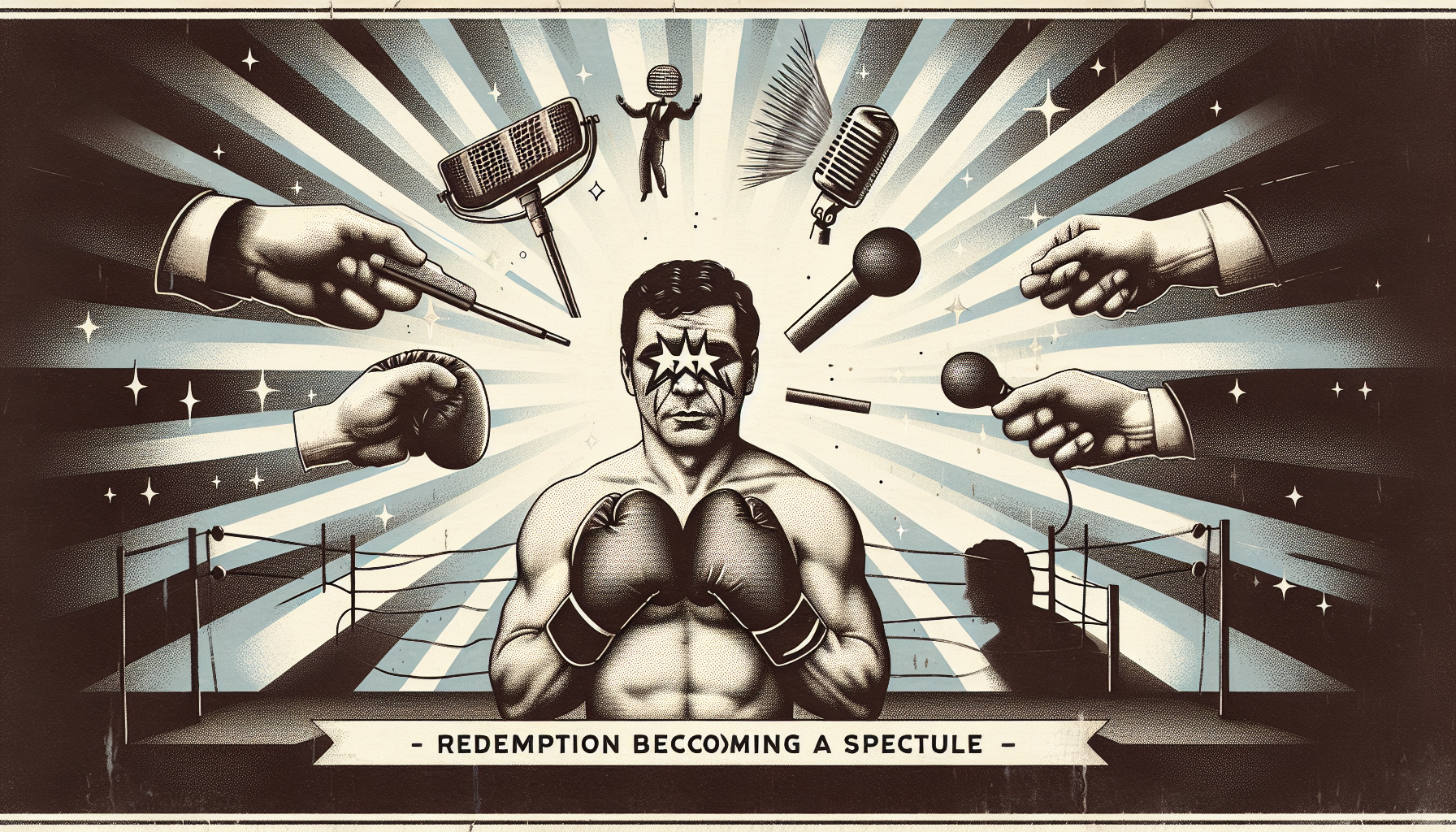Title: When Streets Burn: The Unraveling Threads of Ballymena's Tapestry
Dear readers,
In the small town of Ballymena, where the echoes of history often carry the weight of unresolved tensions, a moment of unrest reminds us of the fragile threads that hold communities together. What happens when these threads unravel under the weight of fear, misunderstanding, and anger?
Welcome to the second night of turbulence in Ballymena, Northern Ireland—a place now marked not just by quaint streets, but by the fiery aftermath of protest-turned-chaos.
A Tragic Prelude to Violence
The catalyst? Allegations of a heinous crime—a sexual assault—brought two teenage boys to the Coleraine Magistrates’ Court. Allegations denied, yet potent enough to ignite a town already simmering with underlying tensions. The backdrop to this unrest is not just the courthouse, but a community grappling with the complexities of identity and belonging.
Maria McCann of BBC News gives us a raw glimpse into Ballymena's nights of chaos. Protestors, with adrenaline flowing and intentions murky, turned the town into a stage of conflict. Petrol bombs, bricks, and fireworks transformed peaceful protests into a battle of wills between civilians and police.
When Home Becomes Ground Zero
Imagine standing at the doorway of your home, a sanctuary you pay for with hard-earned money, now a battleground. This was the reality for Mika Kolev, a mother and dedicated Ballymena resident. Her house, marked by the violence streamed relentlessly on social media, stood as a testament to what happens when strangers' anger envelops your safe space.
"My daughter was born here," Mika reflects. Her fear isn't just for her family's immediate safety; it's an existential dread of becoming a stranger in her own city, a city her children call home. Her story echoes a broader narrative—a Bulgarian mother considering the heart-wrenching decision to return to Bulgaria, not by choice, but out of necessity.
The Heart of the Matter
Officials from all corners—the Prime Minister, the First Minister, even local assembly members—have condemned the violence. The lexicon? Familiar but urgent: "racist thuggery," "division," and "chaos." Yet, within these words lingers a more profound truth—one that challenges us to consider what it means to belong in a world that's increasingly boundaryless yet starkly divided.
But between these fragmented reports and official statements lies another narrative. It is the story of community members hastily putting up signs—"British household," "Filipino lives here"—seeking not just to affirm identity but to shield themselves amidst the chaos. It raises the question: Are we fortifying our communities, or are we erecting walls that further isolate?
Silent Calls for Compassion
What unfolds in Ballymena is not unique. In an era where social media amplifies each protest and every conflict, identities can clash rather than coincide. Chief Constable Jon Boutcher's commitment is clear—justice shall pursue those who tear at the fabric of Ballymena's peace. Yet, this resolution must be met with empathy and inclusion to truly heal.
Dear readers, Ballymena's story is not just about the violence that breaks out but about the resilience that follows. It’s about how community leaders, residents, and indeed, each of us, respond to these challenges. As we reflect on these events, may we be guided by a whisper of hope lingering in the backdrop—the hope for an understanding that transcends barriers, a unity that heals divisions, and a future that embraces diversity.
As the streets of Ballymena undergo their cleanup and healing begins, remember the words of the wise: belonging isn’t simply a matter of origin or residence, it’s an embrace of humanity. Until next time, may we find more that unites than divides us.
Yours in observation and hope,
A Watcher of Communities and Cultures

